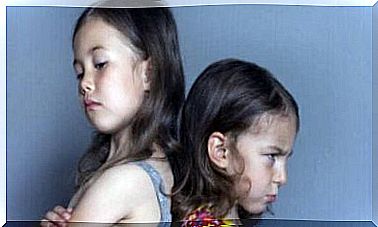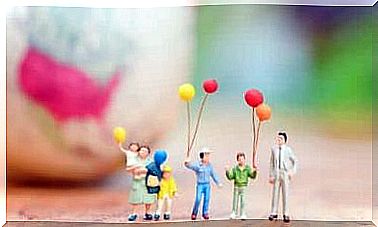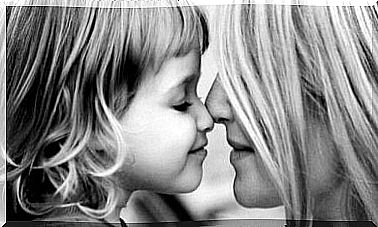Using Guilt To Raise Children: What Does It Do To The Children?
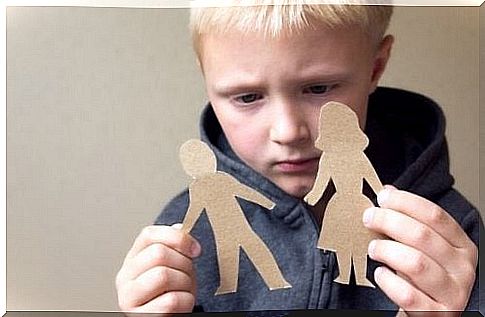
There are still many parents who justify using guilt as a parenting style. They believe that rewards and punishments are the basic foundation of a proper education. This is true, especially at an early age. However, it is important to understand that this is just a step that they must overcome.
Blame the leader for emotional distress. It comes from a symbolic and social punishment. However , it does not lead to responsibility, it does not promote autonomy, nor does it allow each individual to decide which values to follow or not. Using guilt to raise children does not educate them, it only conditions them.
It is true that using guilt increases control over a child. This facilitates the work of an authoritarian parent. The child is filled with fear, moral conditioning and therefore becomes more manageable. The child follows instructions more easily because it is weaker. They also behave within the norms because the fear is too strong. They become a very docile person, but not a free and happy person.
Guilt as a parenting style shatters children’s self-esteem
Children need orientation, and parents should offer it in conditions that allow them to strengthen themselves. Using guilt to raise a child does the opposite. The goal is to make them believe that what they are doing, feeling, wanting and thinking is unacceptable.
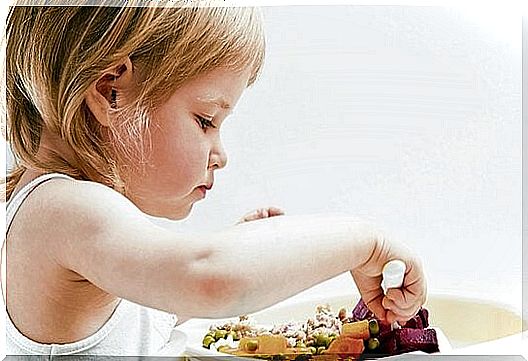
Let’s look at an example to better understand it. The child will not eat vegetables because they have a bitter taste that the child does not like. From a guilty perspective, the parents tell the child to just eat the vegetables without complaining. From a perspective that aims to strengthen them, the parents tell the child that masters eat vegetables because it gives them great strength.
No child acts to disturb their parents. On the contrary, they behave to satisfy them and make them feel proud. Their moral immaturity is what prevents them from conforming to certain rules and norms. Parents need to help them understand why those norms exist and where they came from.
Using guilt hinders the development of conscience
Raising a child is not just teaching them to follow rules blindly. It makes the child believe that they must behave as authority figures dictate to them. In addition, it leads them to believe that all rules are unquestionable and that violating them is an immoral behavior.
What parents achieve with this is just to mark a break between desire and responsibility. The problem with this is that it worsens the child’s critical ability. Thus, there is no real conscience development for their behavior.
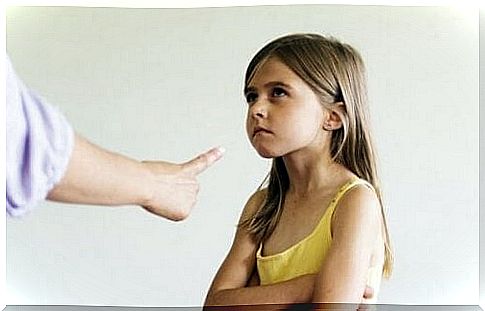
Conscience develops when one can choose how to behave. If someone has a wide range of conscience, this person is more difficult to manipulate, bring down and use. On the other hand, if someone was conditioned by guilt, they never reach the point where they rationalize their values. They are dependent on the approval of their authority for their actions.
Raising children without using guilt
Humans are egocentric when they are born. For a small child or an infant, it is impossible to see the world beyond their own needs. At this stage, the parents must meet these needs and help the child feel that he is in a safe environment. This will build self-confidence and self-love.
With weaning and potty training, a long road to the introduction of a normative framework in culture begins. It is obvious that limitations create frustration, and therefore rejection. It is difficult for the child to understand that they are not the center of their world. This generates problems that should not under any circumstances lead to guilt as a parenting style.

In this long process , it is ideal for parents to teach their children to think about the consequences of their actions. Therefore, it is important that parents also teach them to recognize their feelings, desires, boundaries and the rationale behind them. The margin on how to make their choices and how to decide must be gradually expanded. Parents never do this perfectly, but their intentions should always be real.


